Women need more than a day. Here's a list of feminist resources we love
International Women's Day is over, but the work never bloody is.
Introduction today written by Green Fix Assistant Editor Issy Pountney.
When my sister came back from Germany to find me rooting through her cupboard looking for any clothes that might have holes in, I knew my recent preoccupation with darning might have got out of hand.
But after fielding some well-founded jokes, I’m standing by it. I love the time and care darning takes, and the small, satisfying scale of weaving up holes. At the moment, I’m staying with my parents, and I have the time to make repairs that they don’t. My dad is currently at work wearing socks with a patch I wove, and mum’s favourite jumper is back in rotation as of last week.
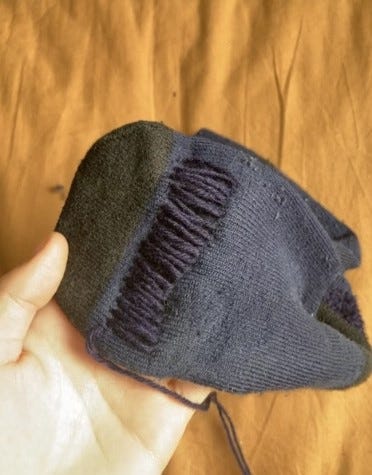
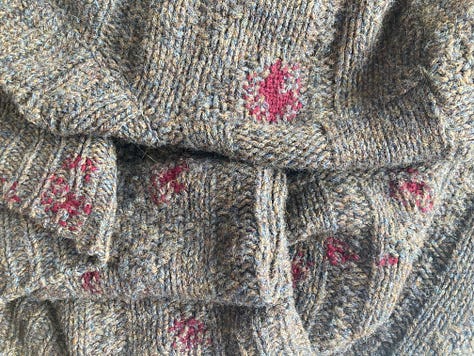

This week my passion reached new heights when I made it to textile artist Celia Pym’s exhibition of… socks. Some had been darned by her, but most by the Surrey Square Primary School community, each pair with unique, bright patches. This approach is called ‘visible mending’, a technique through which repairs are not hidden but made a focus. Pym describes darning as ‘an act of care’, one which she consciously makes visible through her use, and sharing, of this method.
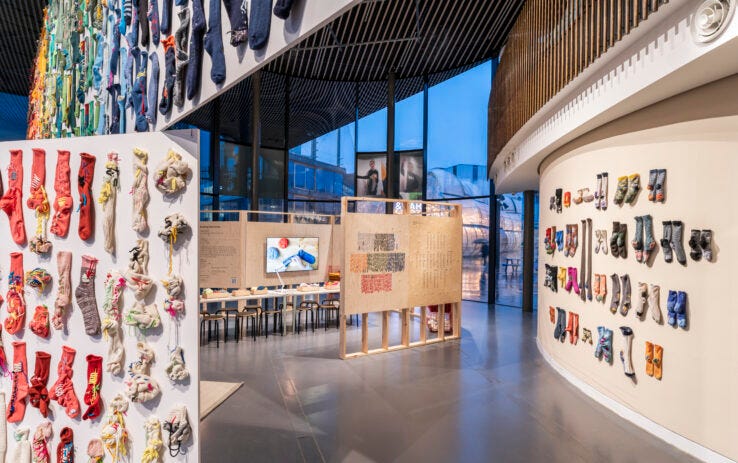
In the context of International Women’s Day, I’ve been thinking a lot about care, its messiness so often expected to be hidden. Globally, women perform over three quarters of unpaid labour, much of which is the care work underpinning our societies. This affects all aspects of women’s lives, exacerbating the gender pay gap and impacting access to education and employment. However, despite its essential role in society, care work is systematically undervalued and often left unmeasured.
The work of women, and particularly black and racialised women, is trivialised – but how many men grow up relying on their mums to put the meals on the table, for immigrant women to accept underpaid cleaning jobs or for their girlfriends to make their doctors’ appointments for them?
The small act of visible darning makes a display of the time, effort and creativity used in this act of care.
Repairing is also crucial to shifting to a circular economy, one which both values care work, and the well-being of our climate. In our bloated, growth-fixated, capitalist system, mending is either actively made inaccessible or commodified and monopolised, often encouraging or forcing people to buy new to maintain unsustainable endless production.
But also on a personal level, repairing builds community and slows you down, which in itself can be a radical anti-capitalist act. I was lucky to be taught to darn by people I love, learning to sew with my grandma and to weave from a friend. Recently, repair cafes and community groups have had a surge in popularity and are brilliant, accessible, spaces for sharing this knowledge.
I’ve been finding focusing on smaller scale projects particularly useful in the face of the onslaught of crises parading across the news. Often when things feel overwhelming, weaving smaller changes into your life can be valuable and radical too.
Cover image art source: Rafael Lopez / Syracuse Cultural Workers 2019.
What’s Going On?
Today: a roundup that de-centres rich white US men (let us know if you want this again).
Just Stop Oil protesters’ jail sentences shortened (slightly) after appeal.
Related: Why climate activists are turning to sabotage instead of protest.“Strength in solidarity”: How mutual aid is helping women survive Sudan’s war.
Related: Women in South Sudan disproportionately affected by rising heatwaves.Campaigners celebrate court ruling to ‘decolonise’ Kampala.
Related: Indigenous groups are safeguarding their culture with their own ChatGPT.Nigerian king faces Shell in London high court over decades of oil spills.
Related: Inside a Delhi ‘Warrior Mom’s’ fight for clean air.
If you’d like to support The Green Fix, please consider tipping us a virtual coffee or upgrading to a gift paid subscription (tiered pricing).
A chaotic compilation of intersectional feminist resources
International Women’s Day is every day, and we need more than marches and stickers to dismantle interconnected forms of oppression. The Green Fix advocates for an intersectional feminist future that seeks the collective liberation for all women. We don’t seek to just insert more women into the current political system, we seek new political system/s rooted in decolonialism, democracy, and care.
From our archive:
Women can do anything. But at the moment they're doing everything.
“For the master's tools will never dismantle the master's house. They may allow us temporarily to beat him at his own game, but they will never enable us to bring about genuine change.” Audre Lorde.
Robots that hate women: how bots are being used to push the patriarchy
I saved my coworker’s life and she reported me for assault. Now she’s mad that I’m distant. Am I the asshole?
The way to a girl's heart is feminist climate action
3am. Another man explained to me today how the climate crisis works.
Feminist Substack newsletters we recommend:
- by . “An intersectional feminist newsletter that centers mothers’ experiences.”
- by . “Because everything is about power. And in the new era of Trump-Elon, the question of how to confront it has never been more important.”
- by . “It’s your weekly guide to inclusive language and accessible communication.”
- . “Our mission is to challenge the negative connotation of laziness and reclaim it by making “public” the many endeavours women around the world pursue.”
- by . “You are not crazy. The system is crazy.”
Feminism in practice
Resources to make your workplace more feminist - for managers and recruiters.
How to stop accidentally judging other women and undo internalised misogyny.
6 feminist issues I don’t see mentioned often (biased list by Cass)
Every injustice is a feminist issue. The consistent attack on women’s rights, everyday misogyny and gender-based violence come from the same political and economic structures that drive racial inequality, the climate crisis, and extreme wealth inequality. Gender justice is inseparable from the liberation of everyone from all forms of oppression. So quite frankly I don’t even know how to begin to summarise all the things we need to address.
But on top of widely-documented feminist struggles, here is a short list of six issues that I personally don’t see covered often. Women would have more time and energy to defend our liberation if:
We address the problem of white feminism (video by Rafia Zakaria).
Women’s menstrual health issues are taken seriously. (If you feel like a whole different person before your period, you might have Pre-Menstrual Dysphoric Disorder).
Women eat more: Over 1 billion women suffer malnutrition and end up eating ‘last and least’ and it is holding women back from education and economic opportunities.
We remove capitalist incentives to hate ourselves: Men are making money out of your body image issues and fatphobia.
Men stop fearing the feminine: men are less likely to try to live ethically because caring about the environment is seen as ‘feminine’.
Intersectional feminist resources I think are cool
Intersectional Environmentalist. Website, training organisation and network for intersectional activism.
The Pad Project. Global NGO supporting women’s access to menstrual products.
South Feminist Knowledge Hub. Online catalogue of learning resources about feminism in the Global South.
Women Speak. Stories, case studies and climate solutions from the Global South.
Whose Knowledge? The movement to centre the knowledge of the Global Majority on the internet.
Bloom. Free newsletter and (paid) online community for social impact entrepreneurs.
Would you like to add a recommendation for a feminist resource to read/watch/subscribe to? Let us know in the comments!
10 April, Brussels: Join the Inclusion Revolution!
Book your sponsored slot on The Green Fix by emailing wearethegreenfix@gmail.com.
So Now What Do I Do?
HELP A CAMPAIGN
The EU campaign for abortion rights for women still needs signatures! Sign here.
In the US? Check out this abortion rights toolkit.
Brussels: Next march for Palestine is the 16th March. Pl. Louis Morichar at 13h.
DO SOMETHING
Join The Green Fix for a climate coffee at The Nine on the 28th March at 14h!
Submit your entry to the Women in Photojournalism award by the 15th March!
Tune into this online panel discussion on defending women garment workers. 25 March at 13h CET.
Sign up to this online course on doing research through a feminist and decolonial lens, starting 3rd April.
Stay in the loop
You can follow us on Instagram @thegreenfix_ . Bluesky @thegreenfix.blsky.social and LinkedIn. Connect with Cass on Instagram @cass.hebron, Bluesky @casshebron.bsky.social and LinkedIn.








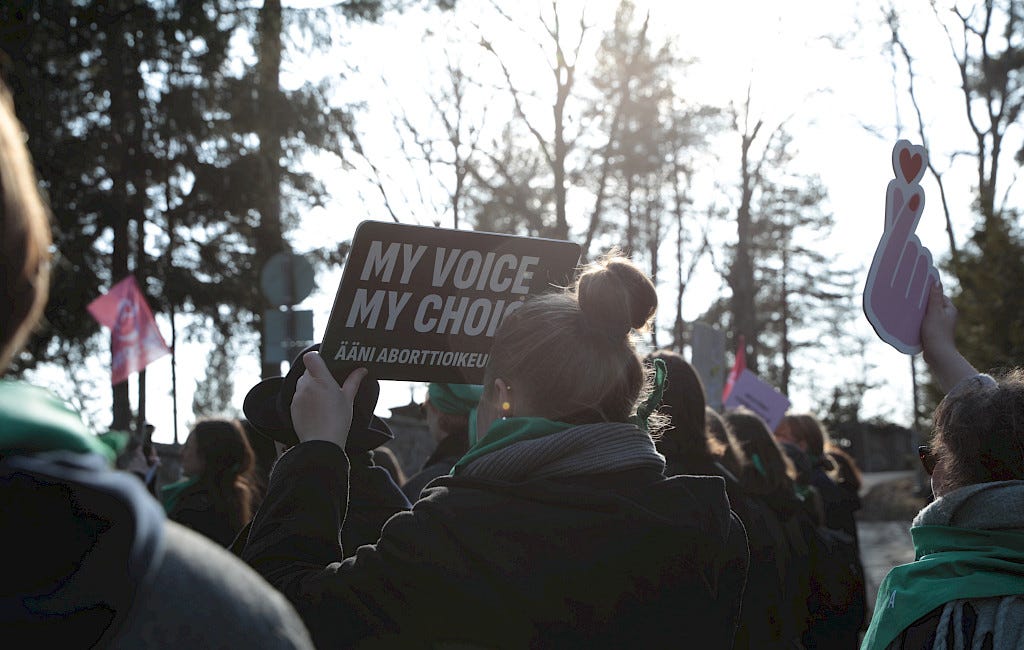
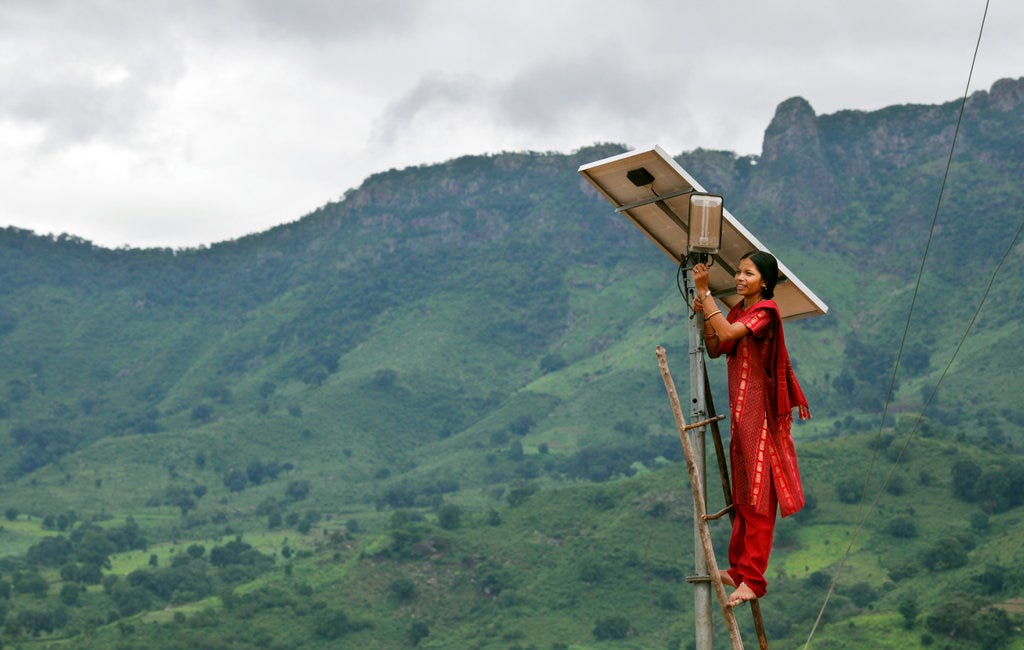
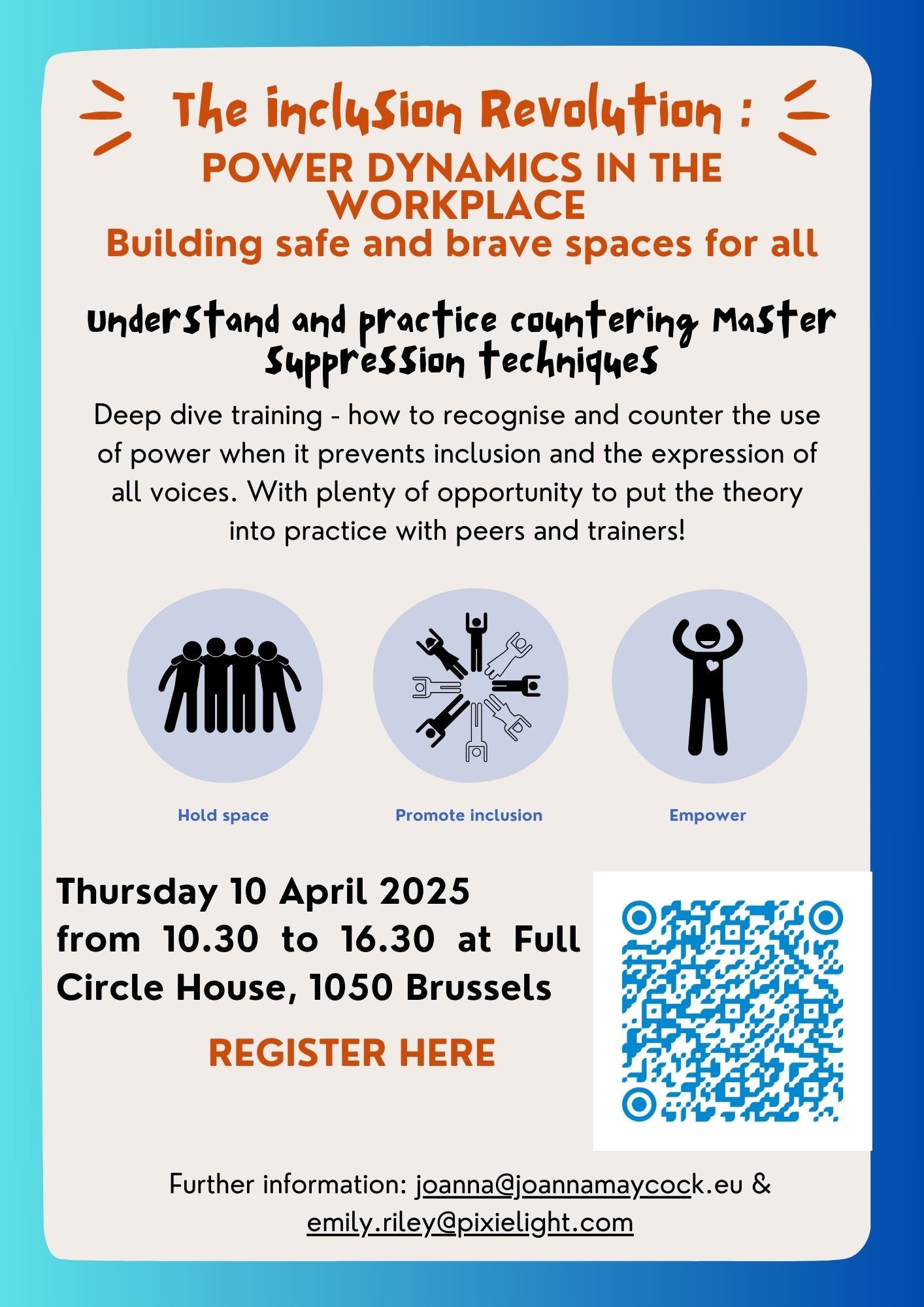
The only IWD article worth sharing and reading. Again. And again. Thank you for soothing words of wisdom.